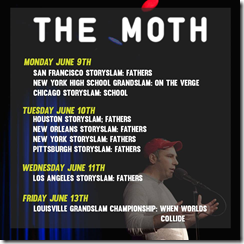I was bullied by a bunch of middle-aged pencil pushers. And it hurt.
/About eight years ago, I was in search of a writer's group. I had just sold my first novel and was hoping to find some colleagues of sorts to meet with and share my struggles and seek solutions. I was new to the writing business and had many questions.
Also, writing can be a lonely business. I was hoping to find some friends.
While wandering through the local library one day, I notice a flyer for a local fiction writers group that was looking for new members. I'm thrilled. Exactly what I was looking for. I had sent my request into the ether, and the universe had responded.
Huzzah!
On a cold, winter night, I trudge through snow and ice over to the library, where I find about a dozen people meeting around a table on the upper floor of a local library.
I couldn’t believe it. Writers excited about their craft, gathering on a weeknight, notebooks piled around a large, oval table, presumably filled with brilliant ideas, finely crafted sentences, and unexpected word choices.
I thought I had found heaven.
The meeting begins with a gentleman at the head of table welcoming the writers. As far as I can tell, he's just another writer, somehow acknowledged as our moderator and leader. Everyone seems to know one another, laughing and chit chatting like old friends. I appear to be the only new face this evening.
Presumed head honcho explains that we will begin with introductions. "Please tell us who you are, what kind of writing that you do, and any recent success that you’ve had with publishing."
People around the table tell us their names, a little bit about their current manuscripts, and news about contests entered, contests found, and in one case, a contest won. Flash fiction. A prize of $10 plus the story will appear on the contest sponsor’s website next month.
Light applause.
Then it’s my turn. Less than six months ago, I sold my first novel to Doubleday, but not wanting to grandstand, I try to downplay my accomplishment.
“I’m a novelist, though I write some poetry and non-fiction too.”
“Any publishing credits?” someone asks.
“Sure. A few op-ed pieces and a couple articles in some educational journals. I’m a teacher.”
“Anything else?” head honcho inquires.
“Well, I sold my first novel a couple months ago, but it won’t be out for more than a year.”
At news of this, everyone sits up. The questions come fast.
"Who bought the novel?"
"How much was the sale price?"
"Hardcover or paperback?"
"Is it a multi-book deal?"
"What was your advance?"
"How did you find a publisher?"
"Do you have a co-author?"
"How old are you?"
I answer as many questions as I can, declining to talk finances but explaining the process by which I found an agent and eventually sold the book. As the group asks clarifying questions, two things become clear to me:
- These people do not like me.
- I am not in heaven.
I explain that after finding an agent, things got a lot easier, as she was able to guide me through the revisions that the manuscript needed. A woman fires back. “How the hell did you find an agent? Did you know somebody?”
“No, I didn’t know anybody.”
I explain the process I went through for finding an agent, and as I do, it becomes clear that the group cannot fathom me writing the whole book before ever finding someone to represent me. Though everyone in the group seems to be writing to one degree or another, they all seem to believe that short stories and flash fiction are they way to go until they find a literary agent. All seem to loathe the idea of spending the time to write a novel before being paid by a publisher upfront.
I begin to wonder how I might leave early, as this meeting is scheduled to last three hours.
In the midst of my interrogation, a woman describes her plan for a three book project: two novels and a nonfiction compendium that would later delve into some of the nonfiction elements of her fiction. She asks me for the best way to proceed in finding an agent to represent and sell her ideas.
“How about writing the first book first?” I say.
It’s as if I have shouted blaspheme from the rooftops of the world. She actually snorts a combination of disbelief and annoyance in my general direction.
Eventually the group turns its attention to the three writers scheduled to be critiqued and their pieces: a science fiction story, a piece of flash fiction, and a short story about a grieving protagonist who eventually drowns himself.
Though I have not received copies ahead of time, the work is passed to me and I am able to read it and make some comments as the group discusses. The flash fiction, 526 words in all, is quite good, but when I make a suggestion for revision, I realize that my critical remark is the first of the evening, and it is met with scorn. Apparently this group is less interested in critical exchange and more interested in congratulatory commentary.
The science fiction is a little overdone but clever nonetheless, and when I suggest adding simulated newspaper accounts to the story, perhaps in a sidebar, to move the plot forward, I am again given the cold shoulder.
Not simply a polite rejection of the idea, but a dismissive wave.
There is no hope for the suicide by drowning story. It's awful. But when I offer a joke referencing Ophelia in Hamlet, it’s met with bewilderment and at least one eye roll.
Thankfully, the meeting breaks half an hour early.
When I arrive home, Elysha greets me with a smile. "How did it go?" she asks like a mother asking her son about his first soccer practice. She's beaming. She's so happy for me.
"I hated it," I said. "They were mean to me. Angry at me. They didn't like me."
Elysha consoles me. I don't go back next month.
Two years later, I return to the group for another try. Maybe it just was a bad night. An aberration. Maybe the membership had changed in the two years since I had attended last. Maybe I'm simply a glutton for punishment.
No change. Same people. Same response.
Oh well.






